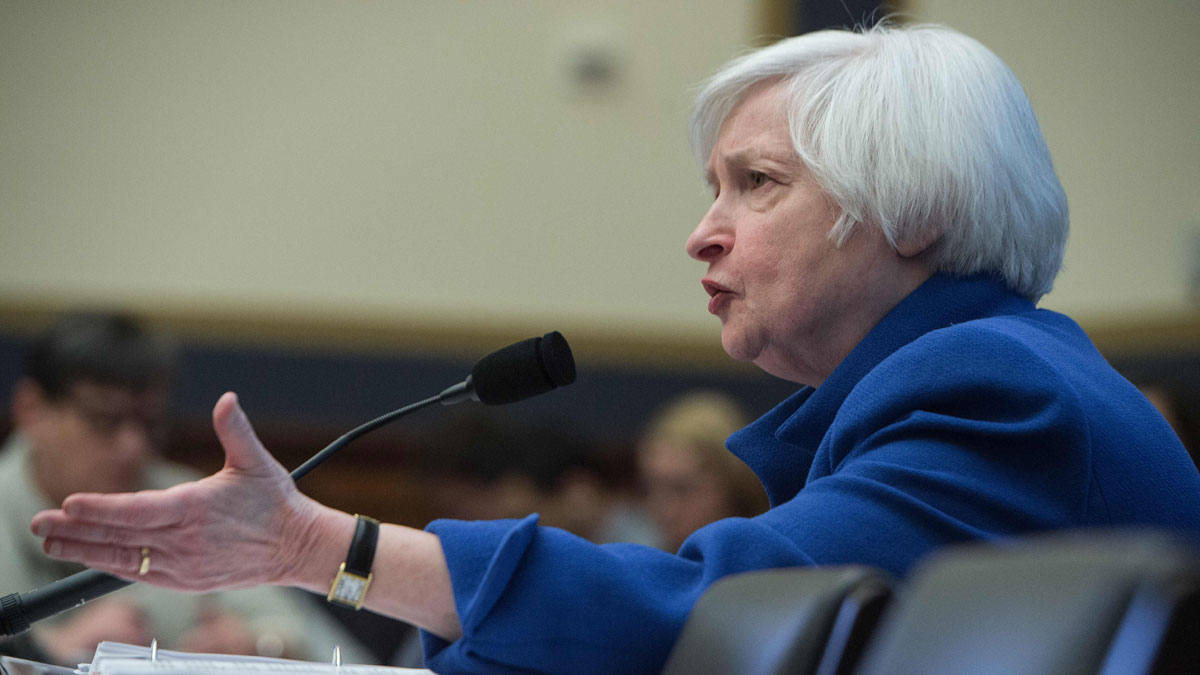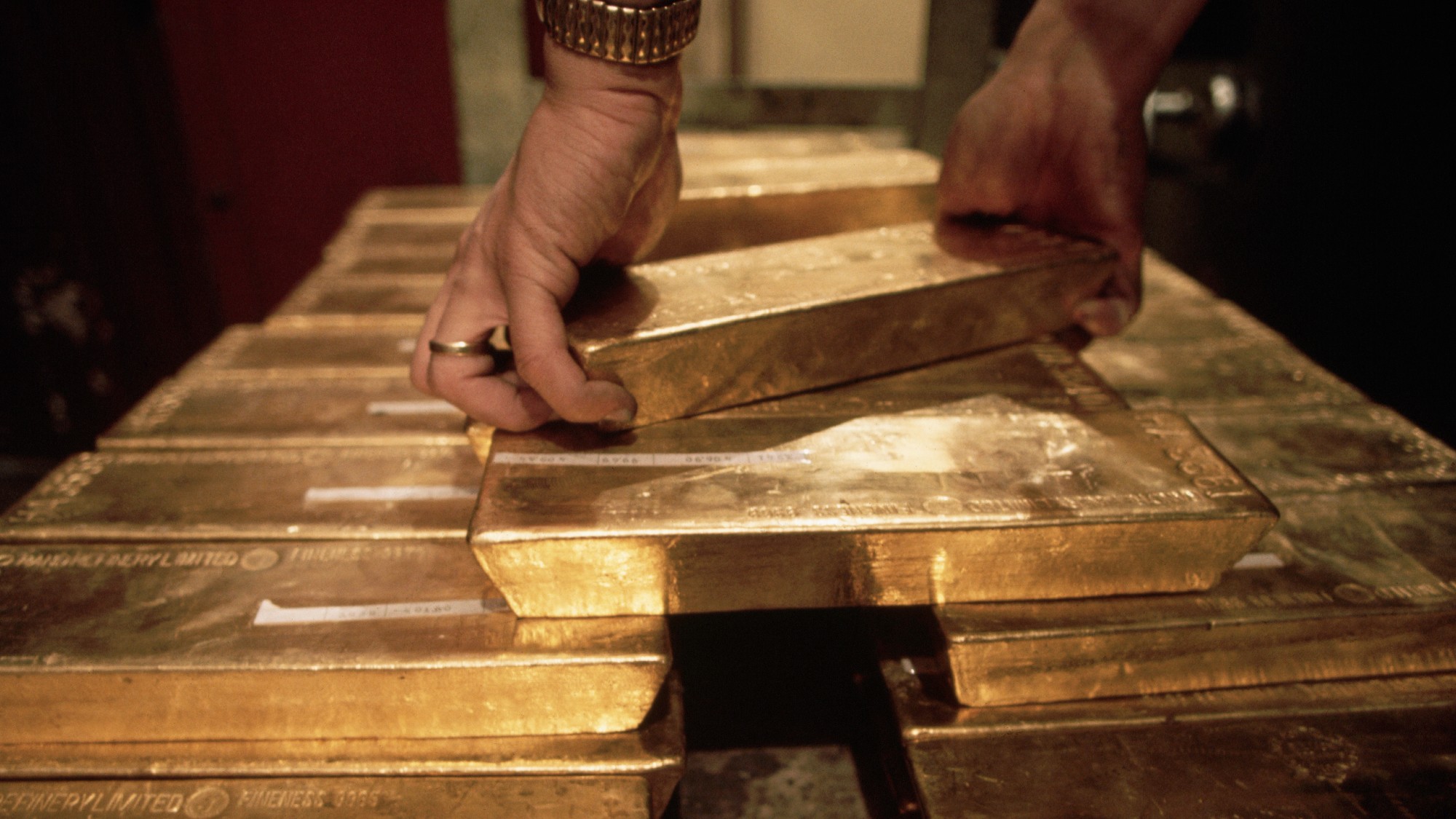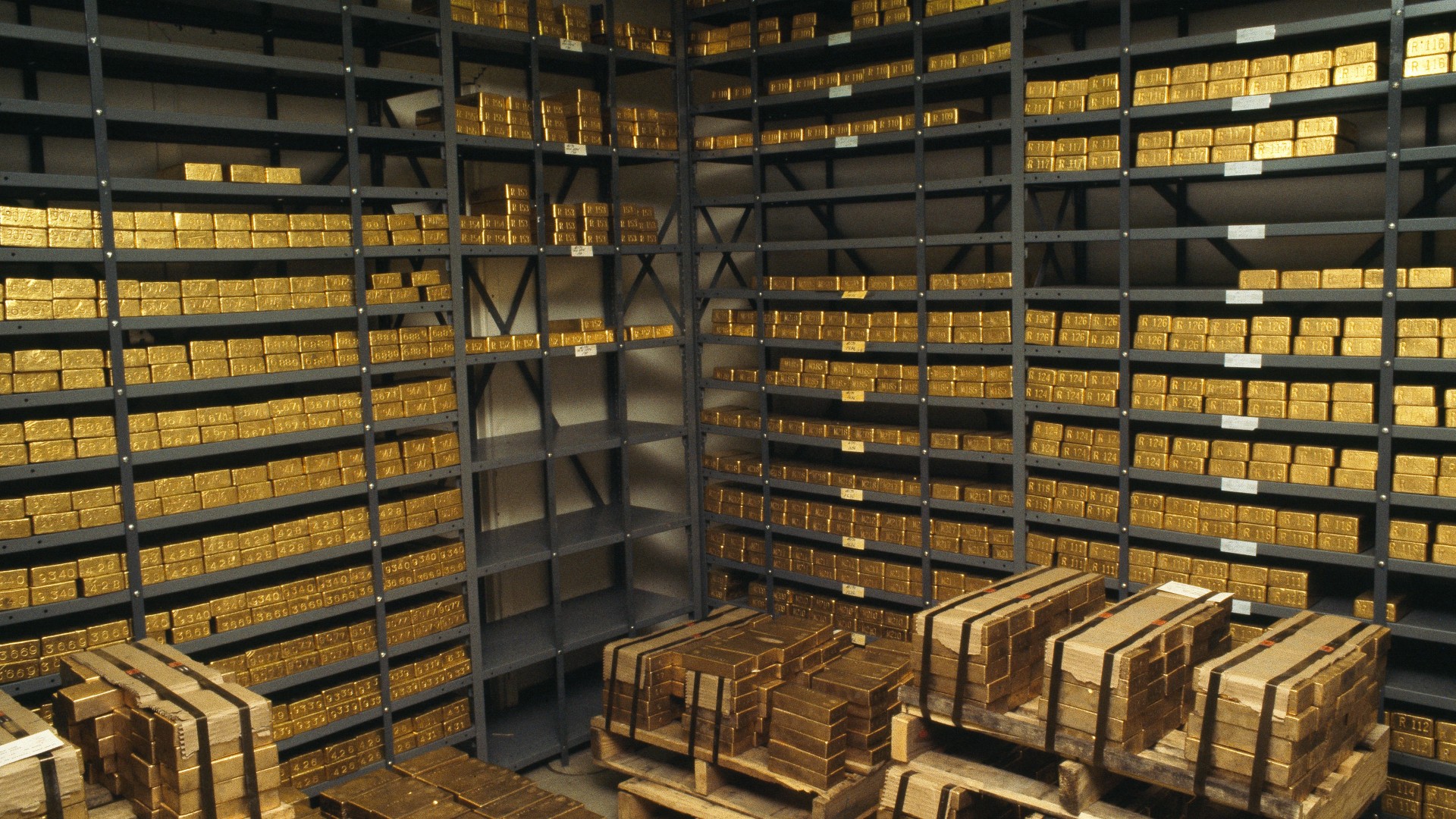Gold price waits for rates clues from Jackson Hole
Political turmoil in the US has the potential to 'help gold in the short and longer term'

A free daily email with the biggest news stories of the day – and the best features from TheWeek.com
You are now subscribed
Your newsletter sign-up was successful
How to invest in gold
Gold has had a tough time for the past three years. Following a spectacular bull run from around the $250-per-ounce mark in the early 2000s, it peaked at nearly $2,000-per-ounce in mid-2011. Since then, as investors have become more convinced by the economic recovery and the ability of central banks to prop up financial systems around the world, many have sold their gold holdings to buy equities, driving the price lower.
Yet we’d still suggest it’s worth having 5% to 10% of your portfolio in physical gold as a way to diversify your portfolio. Gold can be volatile (that is, its price goes up and down a great deal); however, it has the useful tendency to behave differently to other asset classes such as stocks and bonds. It also tends to benefit when nerves are frayed about the state of the financial system, because gold is one of very few assets whose value does not depend on the solvency of a counterparty – in other words, your gold is always going to be worth something, even in extreme situations. In effect, you can see it as a form of insurance.
But what is the best way to buy? There are several ways to get exposure to physical gold, either holding it yourself, or stored on your behalf in a vault. For example, the Royal Mint has just launched a new online service allowing investors to buy gold coins direct. Previously it has sold collectible coins direct to the public, but now you can buy ‘bullion’ coins – which track the spot gold price much more closely, and are so more suited to investment – including sovereigns, Britannias, and the more recently introduced Lunars. If you do plan to buy physical gold, it’s well worth considering these UK coins – gold purchases in general do not attract VAT (unlike silver). But these coins are also legal tender in the UK, and so do not attract capital gains tax (CGT) either, unlike other forms of physical gold.
The Week
Escape your echo chamber. Get the facts behind the news, plus analysis from multiple perspectives.

Sign up for The Week's Free Newsletters
From our morning news briefing to a weekly Good News Newsletter, get the best of The Week delivered directly to your inbox.
From our morning news briefing to a weekly Good News Newsletter, get the best of The Week delivered directly to your inbox.
The Royal Mint will sell you a coin at a price that fluctuates in line with the gold price, and post it to you via insured mail. That said, it’s just one of a number of gold providers who do so, and it’s certainly not the cheapest. As with everything in investment, keeping your costs under control is crucial – so take a look at the table on the right which shows some of the most popular gold bullion providers, and shop around, just as you would for a stockbroker or investment fund.
Also, before you start buying physical gold, you need to think about where you are going to store it. Part of the appeal of investing in gold coins is that you can hold them in your hands, keep them at home and pass them on as gifts without administration fees. But, before you starting filling your sock drawer with bullion, consider the risks. Your contents insurer will need to know about your gold, which is likely to have at least some impact on your premium unless you have a very small amount. You may also need to store your coins in a safe that is approved for holding gold – this will typically set you back around £500 to buy and install. An alternative is to keep them in a bank safety deposit box, but this will cost you too, and few banks offer this service nowadays.
The Royal Mint will store your coins for you at its vault in South Wales, which is protected by the Ministry of Defence. That might sound appealing but there’s no reason to imagine it’s any more secure than any other vault, and again it will cost you – in this case, 1.2 per cent of the value of your gold holding (1 per cent plus VAT). So, £5,000 of coins will cost you £60 a year to store. The benefit here is that if you never remove your coins from the vault, you can easily sell them back to the Mint when the time comes. But again, many other companies offer this service, so shop around.
And if you really aren’t bothered about seeing your gold for yourself, there are cheaper and arguably more convenient ways to invest. You can use an online trading platform such as bullionvault.com, goldmoney.com or therealasset.co.uk. This enables you to buy gold bars, stored at vaults around the world on your behalf. Storage costs are far lower – 0.12 per cent a year at bullionvault.com, for example – but just bear in mind that profits made on gold bars, unlike legal tender coins, are liable for CGT.
A free daily email with the biggest news stories of the day – and the best features from TheWeek.com
-
 Britain’s ex-Prince Andrew arrested over Epstein ties
Britain’s ex-Prince Andrew arrested over Epstein tiesSpeed Read The younger brother of King Charles III has not yet been charged
-
 Political cartoons for February 20
Political cartoons for February 20Cartoons Friday’s political cartoons include just the ice, winter games, and more
-
 Sepsis ‘breakthrough’: the world’s first targeted treatment?
Sepsis ‘breakthrough’: the world’s first targeted treatment?The Explainer New drug could reverse effects of sepsis, rather than trying to treat infection with antibiotics
-
 What a rising gold price says about the global economy
What a rising gold price says about the global economyThe Explainer Institutions, central banks and speculators drive record surge amid ‘loss of trust’ in bond markets and US dollar
-
 Gold tops $4K per ounce, signaling financial unease
Gold tops $4K per ounce, signaling financial uneaseSpeed Read Investors are worried about President Donald Trump’s trade war
-
 Safe harbor: Gold rises as stocks sink
Safe harbor: Gold rises as stocks sinkfeature It's a golden age for goldbugs
-
 What rising gold prices can tell us about the economy in 2024
What rising gold prices can tell us about the economy in 2024The Explainer Market hits all-time high, boosted by a weakening US dollar and rising global tensions
-
 Gold’s ‘flash crash’: what the experts think
Gold’s ‘flash crash’: what the experts thinkfeature Bad news, good news and a loss of faith
-
 What is the price of gold and when is best to buy?
What is the price of gold and when is best to buy?Speed Read Economic and geopolitical uncertainty traditionally drives investors to reliable metal markets